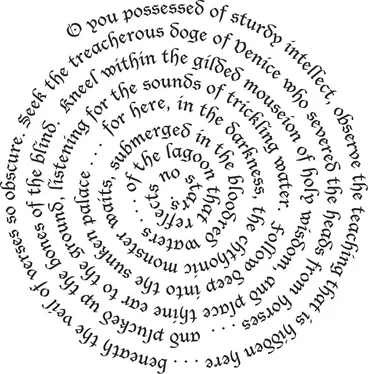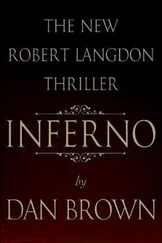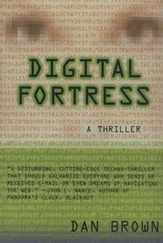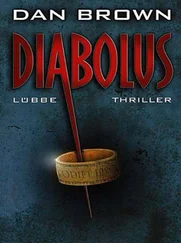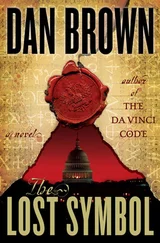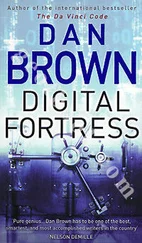Dan Brown - Inferno - A Novel
Здесь есть возможность читать онлайн «Dan Brown - Inferno - A Novel» весь текст электронной книги совершенно бесплатно (целиком полную версию без сокращений). В некоторых случаях можно слушать аудио, скачать через торрент в формате fb2 и присутствует краткое содержание. Год выпуска: 2013, ISBN: 2013, Издательство: Doubleday, Жанр: Старинная литература, на английском языке. Описание произведения, (предисловие) а так же отзывы посетителей доступны на портале библиотеки ЛибКат.
- Название:Inferno: A Novel
- Автор:
- Издательство:Doubleday
- Жанр:
- Год:2013
- ISBN:978-0-385-53786-5
- Рейтинг книги:4 / 5. Голосов: 1
-
Избранное:Добавить в избранное
- Отзывы:
-
Ваша оценка:
- 80
- 1
- 2
- 3
- 4
- 5
Inferno: A Novel: краткое содержание, описание и аннотация
Предлагаем к чтению аннотацию, описание, краткое содержание или предисловие (зависит от того, что написал сам автор книги «Inferno: A Novel»). Если вы не нашли необходимую информацию о книге — напишите в комментариях, мы постараемся отыскать её.
Inferno: A Novel — читать онлайн бесплатно полную книгу (весь текст) целиком
Ниже представлен текст книги, разбитый по страницам. Система сохранения места последней прочитанной страницы, позволяет с удобством читать онлайн бесплатно книгу «Inferno: A Novel», без необходимости каждый раз заново искать на чём Вы остановились. Поставьте закладку, и сможете в любой момент перейти на страницу, на которой закончили чтение.
Интервал:
Закладка:
Knowlton fast-forwarded from the beginning, looking for any clue he might have missed. He skipped past the submerged plaque … past the suspended bag of murky yellow-brown liquid … and found the moment that the beak-nosed shadow appeared—a deformed silhouette cast upon a dripping cavern wall … illuminated by a soft red glow.
Knowlton listened to the muffled voice, attempting to decipher the elaborate language. About halfway through the speech, the shadow on the wall suddenly loomed larger and the sound of the voice intensified.
Dante’s hell is not fiction … it is prophecy!
Wretched misery. Torturous woe. This is the landscape of tomorrow.
Mankind, if unchecked, functions like a plague, a cancer … our numbers intensifying with each successive generation until the earthly comforts that once nourished our virtue and brotherhood have dwindled to nothing … unveiling the monsters within us … fighting to the death to feed our young.
This is Dante’s nine-ringed hell.
This is what awaits.
As the future hurls herself toward us, fueled by the unyielding mathematics of Malthus, we teeter above the first ring of hell … preparing to plummet faster than we ever fathomed.
Knowlton paused the video. The mathematics of Malthus? A quick Internet search led him to information about a prominent nineteenth-century English mathematician and demographist named Thomas Robert Malthus, who had famously predicted an eventual global collapse due to overpopulation.
Malthus’s biography, much to Knowlton’s alarm, included a harrowing excerpt from his book An Essay on the Principle of Population :
The power of population is so superior to the power in the earth to produce subsistence for man, that premature death must in some shape or other visit the human race. The vices of mankind are active and able ministers of depopulation. They are the precursors in the great army of destruction; and often finish the dreadful work themselves. But should they fail in this war of extermination, sickly seasons, epidemics, pestilence, and plague, advance in terrific array, and sweep off their thousands and ten thousands. Should success be still incomplete, gigantic inevitable famine stalks in the rear, and with one mighty blow levels the population with the food of the world.
With his heart pounding, Knowlton glanced back at the paused image of the beak-nosed shadow.
Mankind, if unchecked, functions like a cancer .
Unchecked . Knowlton did not like the sound of that.
With a hesitant finger, he started the video again.
The muffled voice continued.
To do nothing is to welcome Dante’s hell … cramped and starving, weltering in Sin.
And so boldly I have taken action.
Some will recoil in horror, but all salvation comes at a price.
One day the world will grasp the beauty of my sacrifice.
For I am your Salvation.
I am the Shade.
I am the gateway to the Posthuman age.
CHAPTER 34
The Palazzo Vecchio resembles a giant chess piece. With its robust quadrangular facade and rusticated square-cut battlements, the massive rooklike building is aptly situated, guarding the southeast corner of the Piazza della Signoria.
The building’s unusual single spire, rising off center from within the square fortress, cuts a distinctive profile against the skyline and has become an inimitable symbol of Florence.
Built as a potent seat of Italian government, the building imposes on its arriving visitors an intimidating array of masculine statuary. Ammannati’s muscular Neptune stands naked atop four sea horses, a symbol of Florence’s dominance in the sea. A replica of Michelangelo’s David —arguably the world’s most admired male nude—stands in all his glory at the palazzo entrance. David is joined by Hercules and Cacus —two more colossal naked men—who, in concert with a host of Neptune’s satyrs, bring to more than a dozen the total number of exposed penises that greet visitors to the palazzo.
Normally, Langdon’s visits to the Palazzo Vecchio had begun here on the Piazza della Signoria, which, despite its overabundance of phalluses, had always been one of his favorite plazas in all of Europe. No trip to the piazza was complete without sipping an espresso at Caffè Rivoire, followed by a visit to the Medici lions in the Loggia dei Lanzi—the piazza’s open-air sculpture gallery.
Today, however, Langdon and his companion planned to enter the Palazzo Vecchio via the Vasari Corridor, much as Medici dukes might have done in their day—bypassing the famous Uffizi Gallery and following the corridor as it snaked above bridges, over roads, and through buildings, leading directly into the heart of the old palace. Thus far, they had heard no trace of footsteps behind them, but Langdon was still anxious to exit the corridor.
And now we’ve arrived , Langdon realized, eyeing the heavy wooden door before them. The entrance to the old palace .
The door, despite its substantial locking mechanism, was equipped with a horizontal push bar, which provided emergency-exit capability while preventing anyone on the other side from entering the Vasari Corridor without a key card.
Langdon placed his ear to the door and listened. Hearing nothing on the other side, he put his hands against the bar and pushed gently.
The lock clicked.
As the wooden portal creaked open a few inches, Langdon peered into the world beyond. A small alcove. Empty. Silent.
With a small sigh of relief, Langdon stepped through and motioned for Sienna to follow.
We’re in .
Standing in a quiet alcove somewhere inside the Palazzo Vecchio, Langdon waited a moment and tried to get his bearings. In front of them, a long hallway ran perpendicular to the alcove. To their left, in the distance, voices echoed up the corridor, calm and jovial. The Palazzo Vecchio, much like the United States Capitol Building, was both a tourist attraction and a governmental office. At this hour, the voices they heard were most likely those of civic employees bustling in and out of offices, getting ready for the day.
Langdon and Sienna inched toward the hallway and peered around the corner. Sure enough, at the end of the hallway was an atrium in which a dozen or so government employees stood around sipping morning espressi and chatting with colleagues before work.
“The Vasari mural,” Sienna whispered, “you said it’s in the Hall of the Five Hundred?”
Langdon nodded and pointed across the crowded atrium toward a portico that opened into a stone hallway. “Unfortunately, it’s through that atrium.”
“You’re sure?”
Langdon nodded. “We’ll never make it through without being seen.”
“They’re government workers. They’ll have no interest in us. Just walk like you belong here.”
Sienna reached up and gently smoothed out Langdon’s Brioni suit jacket and adjusted his collar. “You look very presentable, Robert.” She gave him a demure smile, adjusted her own sweater, and set out.
Langdon hurried after her, both of them striding purposefully toward the atrium. As they entered, Sienna began talking to him in rapid Italian—something about farm subsidies—gesticulating passionately as she spoke. They kept to the outer wall, maintaining their distance from the others. To Langdon’s amazement, not one single employee gave them a second glance.
When they were beyond the atrium, they quickly pressed onward toward the hallway. Langdon recalled the Shakespeare playbill. Mischievous Puck . “You’re quite an actress,” he whispered.
Читать дальшеИнтервал:
Закладка:
Похожие книги на «Inferno: A Novel»
Представляем Вашему вниманию похожие книги на «Inferno: A Novel» списком для выбора. Мы отобрали схожую по названию и смыслу литературу в надежде предоставить читателям больше вариантов отыскать новые, интересные, ещё непрочитанные произведения.
Обсуждение, отзывы о книге «Inferno: A Novel» и просто собственные мнения читателей. Оставьте ваши комментарии, напишите, что Вы думаете о произведении, его смысле или главных героях. Укажите что конкретно понравилось, а что нет, и почему Вы так считаете.
